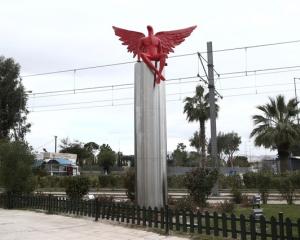Euro zone finance ministers told Greece on Saturday it could not go ahead with an agreed deal to restructure privately-held debt until it guaranteed it would implement reforms needed to secure a second financing package from the euro zone and the IMF.
A planned meeting of euro zone ministers to finalise the second Greek bailout, which has to be in place by the middle of next month if Athens is to avoid a chaotic default, was postponed because of Greek reluctance to commit to reforms.
Instead, the ministers held a conference call on Saturday to take stock of progress on the second financing package, which euro zone leaders set at 130 billion back in October.
"There was a very clear message that was conveyed from all participants of the teleconference ... to the Greeks that enough is enough," one euro zone official said.
"There is a great sense of frustration that they are dragging their feet.
"They should get their act together and start talking honestly, decisively and speedily with the Troika on the aspects of the programme that remain to be finalised - on fiscal and labour market reforms."
The Troika are the representatives of the European Commission, the European Central Bank (ECB) and the International Monetary Fund, which have prepared a debt sustainability analysis on which the second financing programme will be based.
"The main issue is the lack of reform, or prior action, in Greece," a second official said.
Euro zone ministers were also dissatisfied with Greek Finance Minister Evangelos Venizelos who they believed was paying more attention to his position within his party ahead of the April elections.
"There is an increasing sense of frustration that why should we honour our part of the bargain, which we have in the past, while Greece does not seem to care that much, and has not delivered their part of the bargain," the official said.
In Athens, Venizelos admitted to growing impatience with the Greeks.
"There is great impatience and great pressure not only from the three institutions that make up the troika but also from euro zone member states," Venizelos said after what he called a "very difficult" conference call with euro zone counterparts.
Jean-Claude Juncker, who chairs the Eurogroup of euro zone finance ministers, voiced the possibility of default.
"If we were to establish that everything has gone wrong in Greece, there would be no new programme, and that would mean that in March they have to declare bankruptcy," he said in advance copy of comments to news weekly Der Spiegel.
Greece has secured a debt restructuring deal with private creditors to halve the value of Greek debt in nominal terms and in exchange receive new, 30-year bonds with an average coupon below 4%, officials said.
The restructuring is to help make Greek debt sustainable by cutting it to 120% of GDP in 2020 from 160% now.
But euro zone governments will only agree to bolster the debt restructuring, called private sector involvement (PSI), if Athens presses on with reforms.
Debt restructuring is likely to hit Greek banks harder than others, because they hold a lot of Greek government bonds.
Some EU officials said on Friday that euro zone governments may now have to contribute closer to 145 billion than the originally envisaged 130 billion to the second financing package to help recapitalise Greek banks after the bond swap. But there is resistance to that idea from several countries, including paymaster Germany.
Investors and some EU officials have suggested additional money needed to make Greek debt sustainable could come from the ECB, which holds a portfolio of 40 billion-50 billionworth of Greek paper.
"If the Greeks don't start delivering, the question of Official Sector Involvement [OSI] is superfluous."
International lenders to Greece would like to see a lower minimum wage, the removal of the 13th and 14th month "bonus" salary and the liberalisation of labour markets - politically difficult issues for Greek parties before April elections.
"We hope that over the next 12-24-48 hours they will get their act together and ... discuss these matters very urgently with the Troika," the first official said.
Euro zone officials said that Greece, betting the euro zone would not allow a disorderly default because of the possible repercussions across the 17-country single currency bloc, was playing a dangerous game.
"They think that we think that the unthinkable cannot be thought. But they better think again," the first official said.
- Reuters









